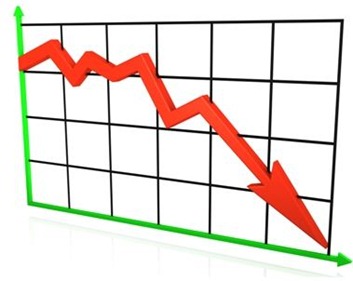Indian Benchmark indices slumped from 18000 odd levels to settle down at 16770 as on Friday’s closing for the week, down by 7% from the recent peaks. The slump was led by Metal stocks on back of slide in prices of base metals.
No sooner the rating agencies sensed the intriguing troubles of Greek crisis, came the series of downgrades spelling doom for these countries leading to sudden surge in borrowing costs and aggravating their problems.
Firstly, we need to understand that stock markets work on new news and concepts that are still likely to see the light of the day. Old news is almost always factored in by the markets based on its cumulative calculations and fundamental bias. Stocks markets are always futuristic in nature.
Going by that, one can safely assume that the news of Greece crisis and a likely worsening of situation in countries like Portugal and Spain are already discounted to a major extent by the markets by now.
Investors need to understand that the jitters of the Greek crisis are almost factored in even as its bail out requirement is fulfilled as of now by EU and IMF.
In fact, what I feel is stock markets may as well have discounted the fact that this bail out measures may not be enough to solve Greece funding requirements in times to come and may need more support from Germany and international agencies.
At this point in time, I would like to add that Indian stock markets have been an out-performer with respect to slump witnessed in other emerging countries with more reliance on commodity prices and natural resources.
Domestic Market Positioning
Coming back to the domestic markets, the trade figures and manufacturing output suggest that the companies have more confidence to ride through any type of crisis and plan for further expansion processes.
The much affected IT sector that have business exposure to the European countries, have also benefited in a way that the crumbling of Euro has strengthened the US dollar, while the Indian Rupee has slumped to 2 month lows at 45.50.
Fundamentally, nothing much has changed for Indian markets over last few months. The recent correction is only on account of global jitters among the foreign investors in this increasingly globalised world.
A more positive aspect for India is RBI returning towards normalization of interest rates which would be beneficial for the economy over longer term duration. This will aid in creating a bubble like situation in hot sectors like real-estate and other rate sensitive industries.
The move also points towards gradual unwinding of stimulus measures announced by the government during the recession in order to control burgeoning fiscal deficit concerns. Tightening of repo rates and Cash reserve ratio are also aimed at curbing rising inflation by sucking out excess liquidity in to the markets.
Investors need to keep in mind that we’ve just passed the phase of global crisis and the worst could well be over for the time being. And it is unlikely that stocks markets would go through the volatile gyrations and a complete tailspin witnessed a couple of years back.
Knowing the Unknown Crisis
For stock markets to correct sharply from here, it needs some news of official sovereign default by a particular country of Europe. Give the current back drop, it is almost given that the big daddies are well aware of the disparities and bad omen that a sovereign default can bring with itself.
It is but obvious feeling that developed economies holding clout in the respective regions won’t let any sovereign default any time soon unless the crisis spread badly and severely.
Another option that could spook global markets is how fast the contagion can spread across other countries or even across adjoining economies. For instance, there are signs that the ongoing European crisis could gradually spreading to the UK.
Britain needs to urgently address its budgetary deficit. Given that, the hung Parliament position in UK and likely delays in fixing deficit targets could grow into new threat. Britain banks are having sizeable exposure in form of debt to nations like Greece, Spain and Italy.
One another aspect that investors need to keep a tab on is how the Euro pans out coming out of European crisis. Some forex analysts have predicted a break-up of Euro is possible sometime in future. With collapse of Euro, the dollar is likely to further strengthen as a reserve currency which will ensure constant topping-up of the burgeoning US crisis.
Patience Pays!
If stock markets witness a further correction in second half of May and the upcoming month of June, if could provide a smart opportunity for the investors waiting on the sidelines all this while after witnessing a sustained ‘V’ shaped recovery post global recession.
Investors must remember that stock markets are never going to have run away rallies (or even corrections). The game of demand and supply for equity stocks always goes through ups and downs, in the process offering opportunities to tuck-in stocks for those waiting on the sidelines. Patience does pay in the end. You just need to wait for it.
Indian stock markets are currently quoting at their average valuations of 16 times forward earnings, which is not so expensive on historical standards. Markets are fairly valued at this point in time – neither cheap, not expensive.
However, to break its recent peak resistance levels around Sensex 18000 levels, corporate profitability needs to fall in line or even out-perform estimated expectations of the markets during the month of July result announcements. Given that, Indian markets are up for testament from the Rain God in terms of monsoon season and its forecast.


No comments:
Post a Comment